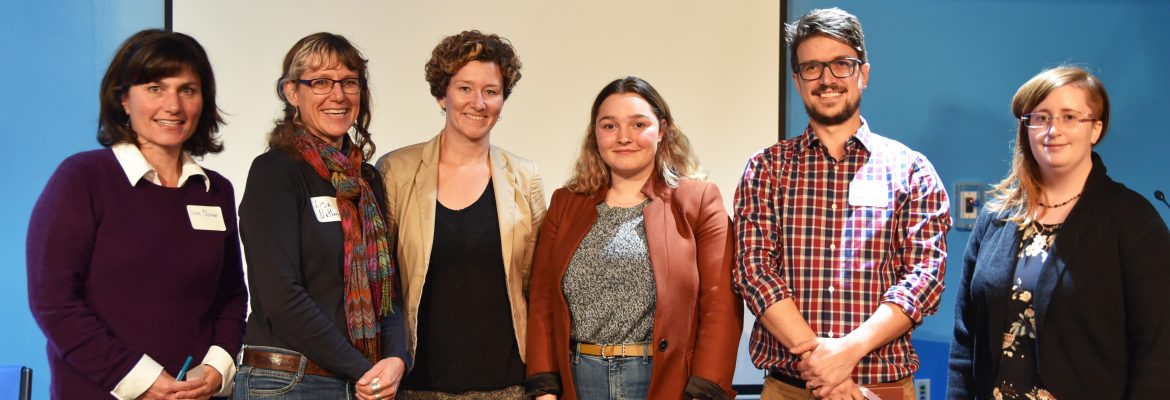We use “open” as though it is free of ideology, ignoring how much “openness,” particularly as it’s used by technologists, is closely intertwined with “meritocracy” — this notion, a false one, that “open” wipes away inequalities, institutions, biases, history, that “open” “levels the playing field.” – Audrey Waters, From Open to Justice
Last month UBC, in partnership with BCIT, SFU and BCcampus, held a panel discussion exploring the tensions and risks on open scholarship, as part of International Open Access Week. The event brought together speakers from BCcampus, Camosun College, SFU and UBC to explore themes including Indigenous and traditional knowledge, ethics and privacy, student-faculty relationships, accessibility and inclusivity, and instructor-institution relationships.
While open practices are enabling faculty, staff and students to reduce barriers to research and education by opening their classrooms, incorporating new resources and perspectives, broadly sharing their data, and contributing to public knowledge, the adoption of open scholarship cannot be assumed to free of biases and conflicts, and the impacts of open practices can differ depending on the context of those practices. Unaddressed tensions caused by “openness” can lead scholars, students, and community members to feel alienated, exploited, or unheard. Unexamined risks can lead to unintended outcomes for any open endeavours.
Within these intersections lies an opportunity for open scholarship: to directly examine and acknowledge the tensions and risks inherent in openness, and to thereby create a space in which dialogue is generated and understanding of openness is deepened.
Featured speakers included:
- Amanda Coolidge (BCcampus)
- Sue Doner (Camosun College)
- David Gaertner (First Nations and Indigenous Studies, UBC)
- Jessica Gallinger (SFU Library)
- Christina Illnitichi (AMS, UBC)
- Lisa Nathan (School of Library, Archival, and Information Studies, UBC)
*Event description from SFU. For full description, click here.

